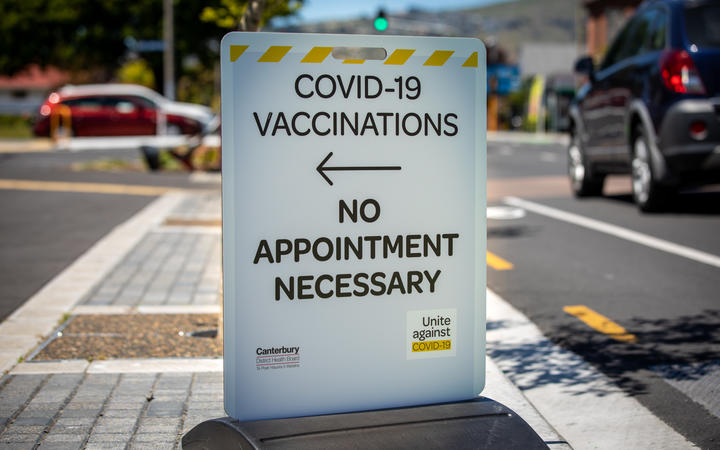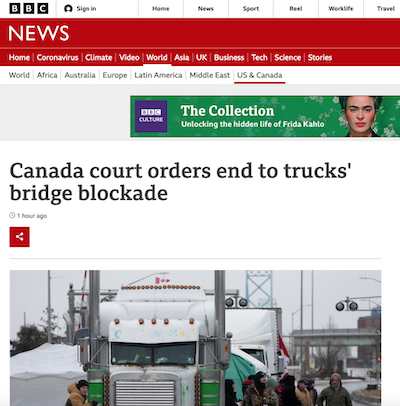COMMENTARY: By Gavin Ellis
It is common practice for journalists to share contact details and locations in hostile environments such as war zones. Something is very wrong when news organisations in New Zealand share those details about their staff covering a story in downtown Wellington.
Stuff’s head of news Mark Stevens disclosed last Friday that “competing media have shared contacts of journalists in the field to provide a safety network if things get dangerous”.
It followed incidents during the “Convoy 2022” protest in the grounds of Parliament when journalists were abused, spat on, and assaulted. A Stuff reporter was pushed and shoved and a protester abused a Newshub news crew member and threatened to destroy his video camera.
Protesters told reporters to “watch your backs on the street tonight” and that they would be “executed” for their reporting. Placards read “Media is the Virus”, “Fake News”, and accused journalists of treason.
One placard parodied a covid-19 health message: “UNITE AGAINST MEDIA 22”.
Anti-media sentiment is nothing new. The 2020 Acumen-Edelman Trust Barometer showed New Zealanders scored media poorly — and below the global average — in terms of competence and ethics and only 28 percent thought they served the interests of everyone equally and fairly.
Those results did make me wonder what news media Kiwis were actually seeing and hearing but, in such things, perception is everything.
Journalists reasonably thick-skinned
But journalists are reasonably thick-skinned: They can take criticism and even insults. I doubt there is a reporter in the country who hasn’t been on the receiving end. Even death threats are something that goes with the territory.
I’ve received a few in my career. Most were of the “Drop Dead” or “You don’t deserve to be here” variety and only one was a credible threat. That one could have endangered others and was not specifically directed at me (it was reported to the police).
However, something has changed.
A reporter I hold in high regard told me last week that he had received more death threats in the last three months of 2021 than in the previous three decades. I’m not going to name him because to do so will simply increase the likelihood of further attempts at intimidation.
He told me reporters had become the focus of a great deal of anger and resentment:
“A few recent events I’ve covered have seen members of the anti-crowd deliberately moving to within a foot of me, maskless, and breathing or coughing at me, or trying to physically rub against me. That’s not an uncommon experience for those out in the field. And there’s the odd occasion, too, where the threat of physical violence is such that I’ve needed to back-peddle quickly.”
We are seeing a migration of behaviour. The US Press Freedom Tracker recorded 439 physical attacks on journalists in that country in 2020 (election year) and a further 142 in 2021. That compared with 41 in 2018 and 2019.
Tightened security
Last June the BBC tightened security around its staff after an escalation in the frequency and severity of abuse from anti-vaxxers. During Sydney anti-mandate protests last September, 7News reporter Paul Dowsley was sprayed with urine and hit in the head by a thrown drink can.
Then, in November, it came here. A 1News camera operator on the West Coast graphically recorded a foul-mouthed middle-aged man carrying an anti-vaxx placard who shoved him backwards and tried to dislodge his camera: “Do you want this [expletive] camera smashed in your face, you [expletive]?”
The current anti-vaxx movement in Canada has generated similar behaviour. Brent Jolly of the Canadian Association of Journalists said several reporters covering the trucker convoy in Ottawa have said they have been harassed on the scene and online and feel like they have a “target on their backs”.
Evan Solomon, a reporter for CTV, told the Committee to Protect Journalists (CPJ) that he had a full can of beer thrown at his head. It missed but exploded inside a camera case. All CTV crews now have a security person with them when filming outside, no longer use lights or tripods, and in one province have removed CTV identification from vehicles.
In Ottawa people have asked reporters to remove their names from stories because they are getting death threats. Broadcasting journalists have been targeted – probably because their presence is more obvious – although one print reporter told the CPJ that she does not wear a mask during protests because it draws attention to her (she is triple vaccinated), does not go into protest crowds at night, and liaises with other reporters to advise current locations and risks.
None of this should suggest a coherent and organised anti-media campaign is sweeping the globe. We are seeing something that is a good deal more orchestrated than organised, in which the anti-vaccination movement is no more than a rallying point, and the media are a target because they are messengers for inconvenient truth.
The proof of that became apparent while I was watching the live feed of the protest in the grounds of Parliament.
‘End the Mandate’ signs
A string of images spelled out how incoherent it was. There were printed “End the Mandate” signs, “My body, my choice” t-shirts, a loony sign saying natural immunity was 99.6 per cent effective, Canadian flags, a figure in Black Power regalia wearing a full-face plastic mask, someone wearing a paramilitary “uniform”, and a man waving the ultimate conspiracy theory sign: “Epstein didn’t kill himself”.
Then there were the actions of the protesters. A few were gesticulating to police and the media, uttering things I could not (and arguable did not want) to hear. Many more were gyrating to rhythms playing over loudspeakers, beaten out on the plastic barriers on the forecourt, or generated in their own heads. It was a sort of group euphoria.
And in a perverse sort of way I think that is what is behind the attitude toward media. 1News reporter Kristin Hall had been reporting the protest and wrote a commentary on the broadcaster’s website. In it she said that despite their varying opinions and causes, the protesters were “united in their distaste for the press”. Then she gave an example of just how incoherent this united front can be:
“‘You’re all liars,’ a man told me today. When I asked if he could be more specific, he said he doesn’t consume mainstream media. People have asked me why I’m not covering the protests while I’m in the middle of interviewing them.”
Unfortunately, it is this lack of logic that makes abuse of media so hard to counter. Media cannot make peace with leaders of a movement because it is a moving feast and the orchestrators are hidden from sight. It cannot be remedied simply by stating facts because these people accept only what supports and ennobles their own disinformation-fuelled world view, a view fed by inflammatory social media that conflates then amplifies discontent on a global scale.
Nor can media offer immediate solutions to pent-up anger aggravated by two years of pandemic.
What media can — and must — do is prevent contagion. They need an inoculation campaign to ensure that the malaise infecting a small group of people does not spread.
Duty of care a priority
Mark Stevens alluded to cooperation between media to keep staff safe and that duty of care is a priority. However, media organisations need to go further. They must, on the one hand, earn the trust of a population that does not generally hold them in high regard. It is best done by demonstrating that journalists are following best professional practice and that means quality reporting and presentation.
On the other hand, they must ensure that the community understands that journalists have a right (indeed, a duty) to report on events in its midst — irrespective of whether or not its members agree with what they are being told.
The United States has an excellent track record in openly discussing professional standards and the role of media in society. We should take some leaves from their book and bring the community more into the conversation.
That is challenging, because the problem does not lie solely with the media but with the system of democracy of which it is a vital part.
Rod Oram, in a commentary on the Newsroom website last weekend, discussed the need for democratic reform:
“We have really struggled, though, to conceive, plan and execute deep systemic change, let alone get as many people as possible involved in that and benefiting from it. But that’s the only way we’ll tackle our deeply rooted economic, social and environmental failures.”
That democratic reform must include the media rethinking how it engages with the public. They must introduce open industry-wide governance to replace anachronistic and sometimes self-serving structures. They must demonstrate their commitment to accuracy, fairness and balance. They must find new ways to be inclusive and pluralistic. They must secure recognition as trusted independent sources of verified facts.
Calling out manipulation
That will take time. Meanwhile the problem of media abuse will continue. The short-term solutions will include calling out those who seek to manipulate a minority to destabilise our society. Here are two good examples:
The short term also requires media organisations to continue to meet that duty of care toward their staff. The Committee to Protect Journalists has developed a four-part “Safety Kit” to provide journalists and newsrooms with basic safety information on physical, digital and psychological safety. It’s a good starting point for any journalist.
Of course, journalists also need to keep matters in perspective. The threats represented by a group of disorganised protesters remains relatively small and, with the right training, journalists can judge the level of risk they face in most situations.
When it came to death threats, for example, I soon learned that I could bin the ones that were written in crayon.
Dr Gavin Ellis holds a PhD in political studies. He is a media consultant and researcher. A former editor-in-chief of The New Zealand Herald, he has a background in journalism and communications – covering both editorial and management roles – that spans more than half a century. Dr Ellis publishes a blog called Knightly Views where this commentary was first published and it is republished by Asia Pacific Report with permission.
- Read the full Gavin Ellis article here:
Copycat media abuse from ragtag bag of protesters
This post was originally published on Asia Pacific Report.

